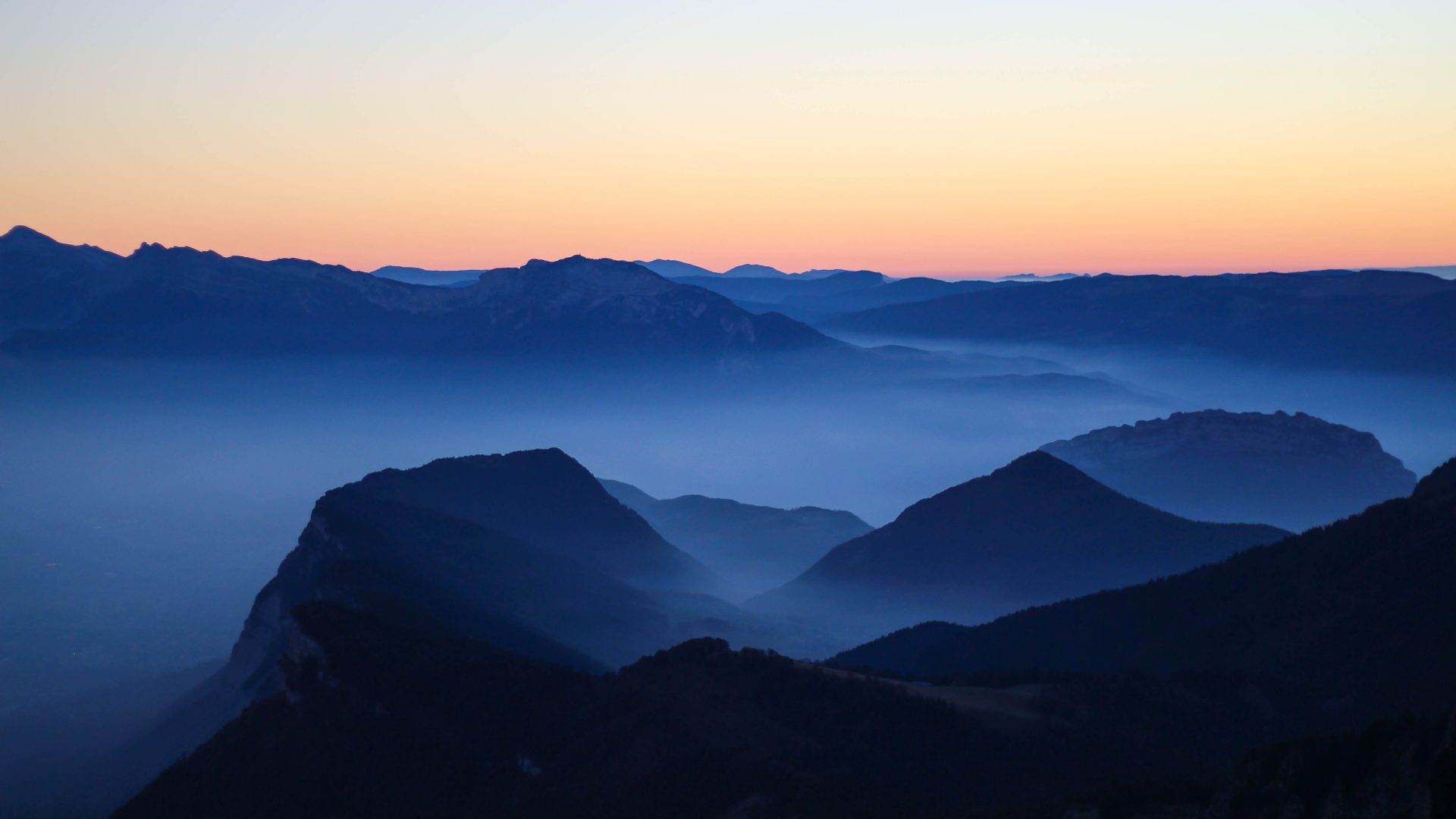
I’ve always wanted, and never had, a sense of inner peace. I remember experiencing happiness throughout my life. I’ve often felt bouncy and full of energy. I remember feeling surges of joy when I was a child, playing board games with my sister and her friend, watching fabulous TV like Dynasty and Dallas, swinging high on the swings, plunging into cool swimming pools. Mostly joy has never been too far a reach for me. I’ve been lucky that way 1
But peace is not something that I’m familiar with. Until recently I don’t think I even knew what it would feel like. What do we mean when we talk about peace? Is it something most people experience regularly? Or even irregularly? It’s been something I’ve been thinking about, and working on, for the last couple of years. It’s been an explicit goal of mine: to have more inner peace.
In psychology people often talk about SMART goals. The principle is that your goals in therapy (or, indeed, life) should be specific, measurable, achievable, realistic and timely. In other words, you should be able to know when you’ve achieved your goals. A goal of “find inner peace” seems entirely at odds with this. First of all, it’s not exactly clear to me what inner peace is. I think I’m clearer about what it isn’t: It’s not being worried, stressed or tense. It’s not ruminating on your behavior 10 years ago at thatparty. It’s not raging against the 4×4 that cut you up at the roundabout. There seems to be something about a lack of negative emotion and a lack of negative cognitions (either about the future or about the past).
But in Acceptance and Commitment Therapy (ACT) we have warning note about Dead Men’s Goals. This has a very straightforward definition: if it’s easier to achieve when you’re dead, then it probably isn’t a great goal for therapy (or, once again, life). So if inner peace involves a lack of negative emotion and cognition, then it probably is easier when you’re dead. So in ACT terms, not a great goal because our very humanity makes it hard to achieve 2
In ACT (and meditative approaches generally) there is an emphasis on not trying to avoid negative thoughts and emotions. Instead we aim for allowing these into our experience. A willingness to be present with whatever is in our lives and our minds right now. The phrase I often like to use with myself is to have a “lack of contention” with our more difficult internal (and external) worlds. So is this inner peace? A kind of lack of contention with the suffering that negative moods and thoughts can bring?
Certainly my experience working with these methods over the last ten years is that yes, it helps. If you can get to that acceptance of the rage, the pain, the sorrow there is a kind of relaxation around it. The tension of the struggle is reduced, but of course the negative mood and cognition remains. So is that inner peace? Is that all it is? A sort of semi-peace around a lot of not-peace? It’s not to knock this approach, it’s nothing short of brilliant. And yet… it’s not really peace is it? Not if I’m still cross, sad, frustrated and hurt.
Okay so let’s talk about when I have felt peace. At the end of therapy session when I’ve worked deeply with a client and they have let go of some deep emotional issues or traumatic memories. They often get to a place of deep peace. It’s transient, sure, but it’s there. Their bodies are relaxed. They talk about a sense of lightness, of calm. Sometimes they mention an image of light, perhaps a deep blue colour, or white or golden. I’ve felt it myself when working through things in my personal life. For me the colour is often white with a blue tinge. It’s an incredible feeling and it feels like peace.
The other times I have felt peace are closely connected to love. When I’m curled up in bed being held by someone I love. I feel safe, warm, calm. When I’m on the sofa with my two girls cuddled up together. I’m calm and relaxed. There’s nowhere else I’d rather be. That’s peace.
So why has peace been so rare for me? I think that this is partly from my early experiences. My mum was always very anxious, which is easily understandable given that her mum was also very anxious. I think that this anxiety has been passed down the maternal line, probably for generations. I didn’t grow up thinking the world was safe, I grew up thinking that danger lurked around every corner. This was compounded by a serious illness in my early teens and some other bits of trauma that really upped my base levels of anxiety. I never really felt safe, so how could I feel peace?
The other part is probably just that I am human. I have a range of human emotions. I get cross, scared, sad and then start all over again. I don’t think a constant state of peace is really possible while having a human experience. I think I might just have to wait for the end of my life to really feel that.
But hey, maybe actually this is okay. Maybe constant inner peace would be a little, I don’t know boring? The kind of existential equivalent of watching the Antiques Roadshow on a loop and eating vanilla yoghurt. Sure it would be comfortable, and nice even, but it wouldn’t be all that interesting.Maybe that’s the point of this crazy human existence. The ups and downs, the joy and the sorrow, the deep loves and the subsequent losses. It’s like riding a roller coaster. The joy is in the contrast. If we don’t go up that huge climb we can’t freewheel down, screaming with delight (and terror).
What I’m going to do for now is keep looking for those peaceful moments. All of my work on myself has meant that I do now feel safe, a lot of the time. I worked through my trauma, that helped. I meditate, I do yoga. I catch myself worrying and I stop; I know worry doesn’t help. When those peaceful moments arrive I drift in them, enjoying the moment, they are truly special. Then it’s back to ups and downs of life and I try to take a step back and observe these, notice them, enjoy them even. They’re part of a precious, astounding and incredible human experience.
And they won’t last forever.


2 thoughts on “Peace”
really enjoy your blogs !!
you always appear very calm
I need to find that inner peace more often
Hi Sarah Thought you might like this from Richard Branson, I feel able to relate to this and it reminded me of your blog. like everyone I have had some very dark moments but have now made a choice to file the memories away, it happened, its over, lessons were learnt and its overshadowed by good memories. One of my happiest , peaceful memories was after a busy summer day with my children I stand at their bedroom door and watch them sleep, the love and peace is overwhelming and unconditional, this is my inner peace its warm ,I think its yellow , these memories I keep (still bring tears of joy when I remember this )
Dear Stranger
You don’t know me but I hear you are going through a tough time, and I would like to help you. I want to be open and honest with you, and let you know that happiness isn’t something just afforded to a special few. It can be yours, if you take the time to let it grow.
It’s OK to be stressed, scared and sad, I certainly have been throughout my 66 years. I’ve confronted my biggest fears time and time again. I’ve cheated death on many adventures, seen loved ones pass away, failed in business, minced my words in front of tough audiences, and had my heart broken.
I know I’m fortunate to live an extraordinary life, and that most people would assume my business success, and the wealth that comes with it, have brought me happiness. But they haven’t; in fact it’s the reverse. I am successful, wealthy and connected because I am happy.
So many people get caught up in doing what they think will make them happy but, in my opinion, this is where they fail. Happiness is not about doing, it’s about being. In order to be happy, you need to think consciously about it. Don’t forget the to-do list, but remember to write a to-be list too.
Kids are often asked: ‘What do you want to be when you grow up?’ The world expects grandiose aspirations: ‘I want to be a writer, a doctor, the prime minister.’ They’re told: go to school, go to college, get a job, get married, and then you’ll be happy. But that’s all about doing, not being – and while doing will bring you moments of joy, it won’t necessarily reward you with lasting happiness.
Stop and breathe. Be healthy. Be around your friends and family. Be there for someone, and let someone be there for you. Be bold. Just be for a minute.
If you allow yourself to be in the moment, and appreciate the moment, happiness will follow. I speak from experience. We’ve built a business empire, joined conversations about the future of our planet, attended many memorable parties and met many unforgettable people. And while these things have brought me great joy, it’s the moments that I stopped just to be, rather than do, that have given me true happiness. Why? Because allowing yourself just to be, puts things into perspective. Try it. Be still. Be present.
For me, it’s watching the flamingos fly across Necker Island at dusk. It’s holding my new grandchild’s tiny hands. It’s looking up at the stars and dreaming of seeing them up close one day. It’s listening to my family’s dinner-time debates. It’s the smile on a stranger’s face, the smell of rain, the ripple of a wave, the wind across the sand. It’s the first snow fall of winter,
and the last storm of summer. It’s sunrise and sunset.
There’s a reason we’re called human beings and not human doings. As human beings we have the ability to think, move and communicate in a heightened way. We can cooperate, understand, reconcile and love, that’s what sets us apart from most other species.
Don’t waste your human talents by stressing about nominal things, or that which you cannot change. If you take the time simply to be and appreciate the fruits of life, your stresses will begin to dissolve, and you will be happier.
But don’t just seek happiness when you’re down. Happiness shouldn’t be a goal, it should be a habit. Take the focus off doing, and start being every day. Be loving, be grateful, be helpful, and be a spectator to your own thoughts.
Allow yourself to be in the moment, and appreciate the moment. Take the focus off everything you think you need to do, and start being – I promise you, happiness will follow.
Happy regards,
Richard Branson”
Comments are closed.